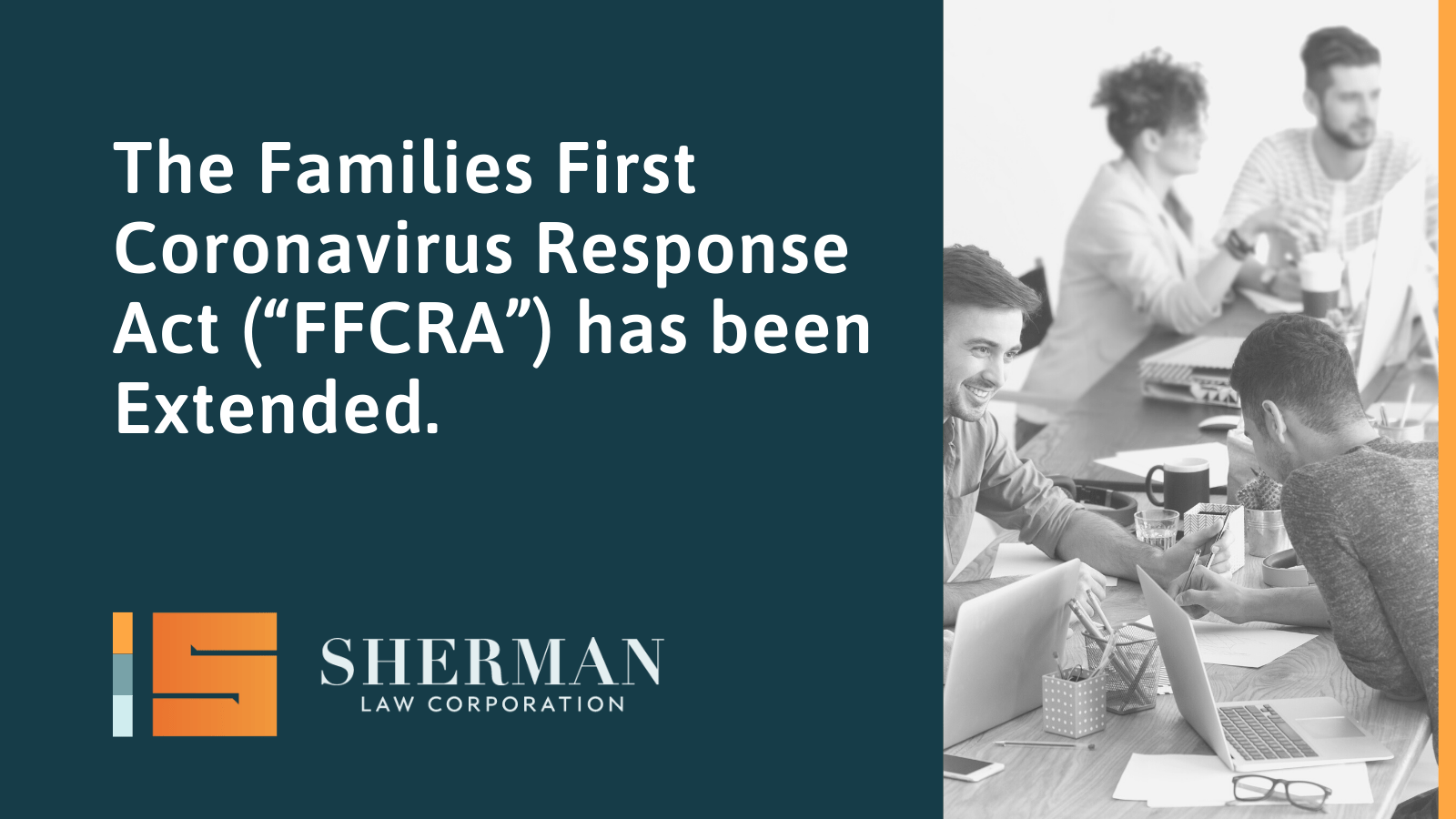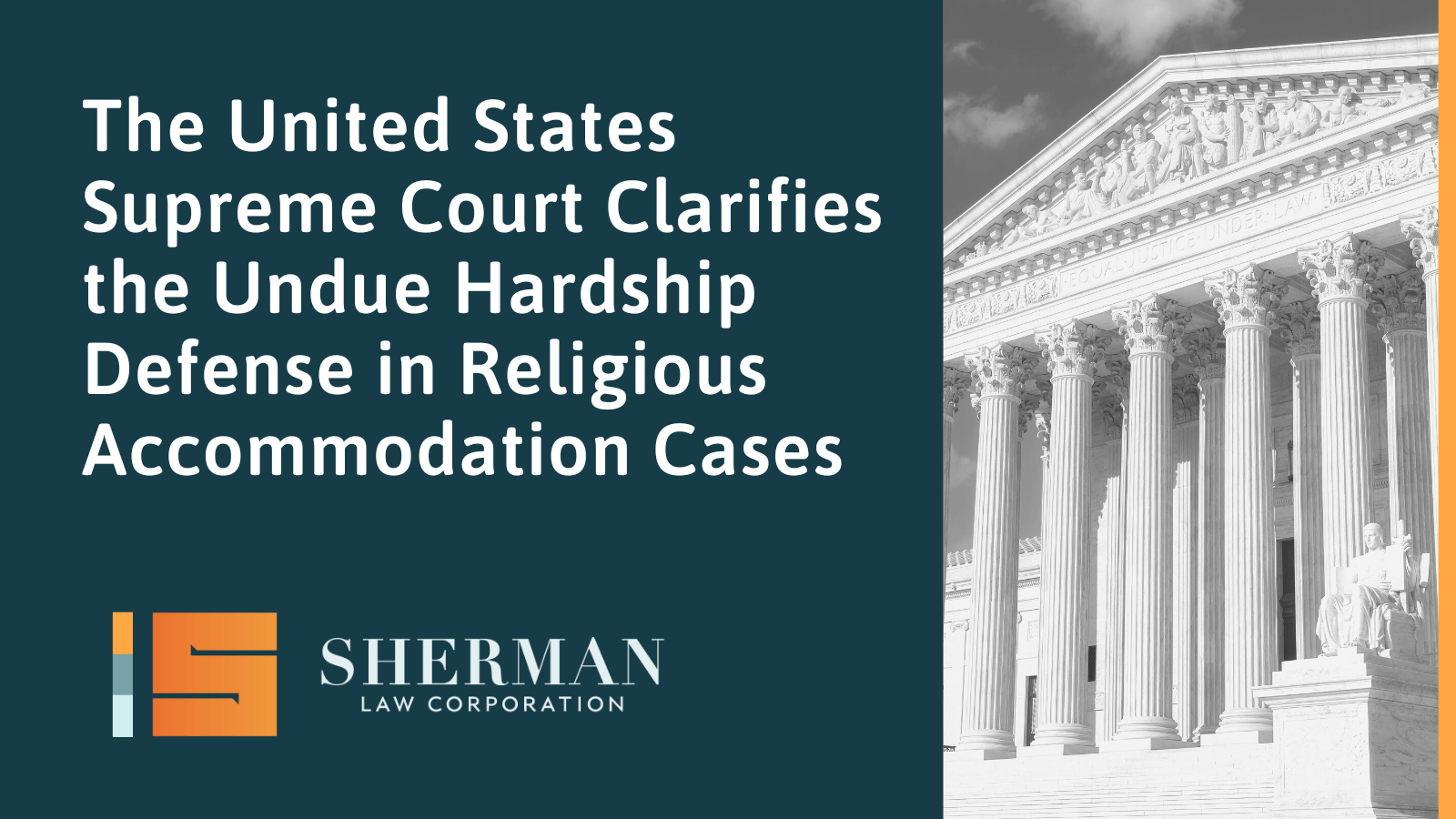
Late last week, President Biden signed the American Rescue Act Plan of 2021.
Most of the reports have been focused on the $1,400 stimulus checks, but on the employment side, extension of the $300 federal unemployment benefit through September 6, 2021, allowing all employees on unemployment to collect an additional $300 a week in benefits is an important benefit to unemployed workers during the pandemic.
A number of provisions have not received much press, including the provisions extending and expanding the Families First Coronavirus Response Act (FFCRA), the statute providing for paid family leave and paid sick leave for employees with COVID-19 issues who work for employers with fewer than 500 employees.
In 2020, all employers with less than 500 employees were required to provide FFCRA paid leave to employees covered by the Act. Effective January 1, 2021, FFCRA paid leave became optional. Covered employers were not required to participate, but if they did, they would continue to receive tax credits for the payments made to employees on leave for covered reasons.
In California, because Cal-OSHA’s Emergency Regulations independently require paid leave for certain employees that contract COVID -19 from potential workplace exposure, many employers maintained their FFCRA leave provisions in place through the end of this month (March 31). Many employers decided that if they had to provide paid leave for employees who received a COVID-19 diagnosis due to work exposure, they would benefit from a program that provides tax credits for the paid leave costs.
The American Rescue Act Plan of 2021 has now extended and expanded the FFCRA in a number of ways.
First, it extended the FFCRA expiration deadline beyond March 31. FFCRA remains optional for eligible employers (those with fewer than 500 employees), but now those employers may continue the program, if they desire, through September 30, 2021. Any employer that voluntarily pays the FFCRA paid leave benefits during this time frame will continue to receive dollar-for-dollar tax credits for the monies paid.
In addition, employers with less than 500 employees should be aware that if they voluntarily opt-in to the FFCRA, the Act’s substantive provisions have been expanded and employees will have broader rights to take sick leave and family leave. In order to promote vaccination and testing, the Act added two additional reasons that allow employees to qualify for FFCRA leave, effective April 1, 2021, if their employer opts in:
- FFCRA leave is available for employees who are unable to work because they are obtaining a COVID-19 vaccine, or are recovering from any illness, injury or condition related to such vaccine (side effects), and
- FFCRA leave is available for employees who are unable to work because they are seeking or waiting for the results of a diagnostic test or awaiting a medical diagnosis.
The American Rescue Act Plan of 2021 also extended the FFCRA in two other critical ways:
- The Act increased the number of weeks that an employee can seek paid family leave under the FFCRA from ten (10) weeks to twelve (12) weeks. Thus, an employee now has 14 weeks of paid leave available, if he or she qualifies: two weeks of paid sick leave and twelve weeks of family leave.
- The Act also resets employees’ FFCRA sick leave rights to zero on April 1, 2021. Therefore, if employees took FFCRA sick leave prior to April 1, 2021, that does not count against their future right to leave right.
Employers will have to decide if they wish to continue providing FFCRA leave. Some employers may not opt-in to the FFCRA because they are worried that by providing such broad paid leave benefits, their employees will be unduly encouraged to take extended leave or that employees will lie about their condition or a potential exposure to take leave even though they are not eligible.
Many employers will likely continue to opt-in to ensure that employees who may have contracted COVID-19 or may be at risk of contracting it are encouraged to stay home and to benefit from the dollar-for-dollar tax credit.
For more information on providing paid sick leave under FFCRA or other laws, feel free to contact Lisa Sherman at Sherman Law Corporation at lisa@sherm-law.com or (323) 488-2087.




